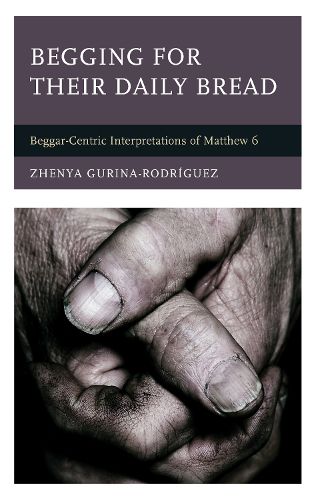Readings Newsletter
Become a Readings Member to make your shopping experience even easier.
Sign in or sign up for free!
You’re not far away from qualifying for FREE standard shipping within Australia
You’ve qualified for FREE standard shipping within Australia
The cart is loading…






In Begging for Their Daily Bread, Zhenya Gurina-Rodriguez formulates a beggars-centric hermeneutic and interprets Matthew 6 through this lense, arguing that this text could be both engaging and alienating to beggars in the first-century Jesus movement. Gurina-Rodriguez establishes that beggars come from different backgrounds and diverse perspectives on their realities of life while sharing particular life experiences marked by destitution, homelessness, lack of any safety net, and controversial reactions from the public to their means of survival. Gurina-Rodriguez constructs three beggar characters, explores the differences and similarities in their possible interpretations of a portion of the Sermon on the Mount, and brings to our attention some of the blind spots that many traditional readings of the text written by non-poor Western scholars have concerning life in poverty.
$9.00 standard shipping within Australia
FREE standard shipping within Australia for orders over $100.00
Express & International shipping calculated at checkout
In Begging for Their Daily Bread, Zhenya Gurina-Rodriguez formulates a beggars-centric hermeneutic and interprets Matthew 6 through this lense, arguing that this text could be both engaging and alienating to beggars in the first-century Jesus movement. Gurina-Rodriguez establishes that beggars come from different backgrounds and diverse perspectives on their realities of life while sharing particular life experiences marked by destitution, homelessness, lack of any safety net, and controversial reactions from the public to their means of survival. Gurina-Rodriguez constructs three beggar characters, explores the differences and similarities in their possible interpretations of a portion of the Sermon on the Mount, and brings to our attention some of the blind spots that many traditional readings of the text written by non-poor Western scholars have concerning life in poverty.